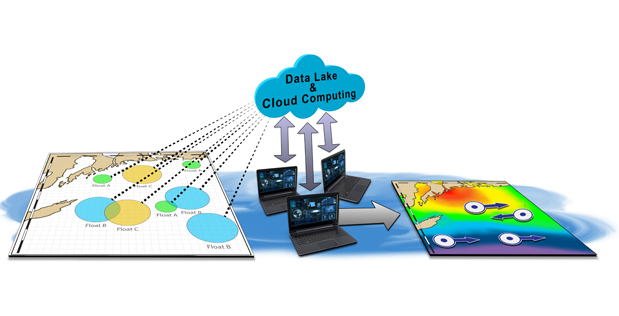DARPA floats idea of persistent situational awareness at sea
Thousands of small, low-cost floats could form a distributed sensor network under a new program at DARPA that aims to boost situational awareness over large areas of ocean.


The goal of DARPA’s (Defense Advanced Research Projects Agency) Ocean of Things program is to increase maritime awareness in a cost-effective way, said John Waterston, program manager in DARPA’s Strategic Technology Office (STO).
Each smart float would contain a suite of commercially available sensors to collect environmental data - such as ocean temperature, sea state, and location - plus activity data about commercial vessels, aircraft, and potentially maritime mammals moving through the area. The floats would transmit data periodically via satellite to a cloud network for storage and real-time analysis.
“It would be cost-prohibitive to use existing platforms to continuously monitor vast regions of the ocean,” said Waterston. “By coupling powerful analytical tools with commercial sensor technology, we plan to create floating sensor networks that significantly expand maritime awareness at a fraction of the cost of current approaches.”
According to DARPA, the technical challenge for Ocean of Things lies in the areas of float development and data analytics.
Register now to continue reading
Thanks for visiting The Engineer. You’ve now reached your monthly limit of news stories. Register for free to unlock unlimited access to all of our news coverage, as well as premium content including opinion, in-depth features and special reports.
Benefits of registering
-
In-depth insights and coverage of key emerging trends
-
Unrestricted access to special reports throughout the year
-
Daily technology news delivered straight to your inbox










BEAS funding available to help businesses cut energy costs
And not a moment too soon, if the following exchange broadcast last Friday 13th June, on the Radio 4 ´Rare Earth´ program (link below, ~ 17 minutes...